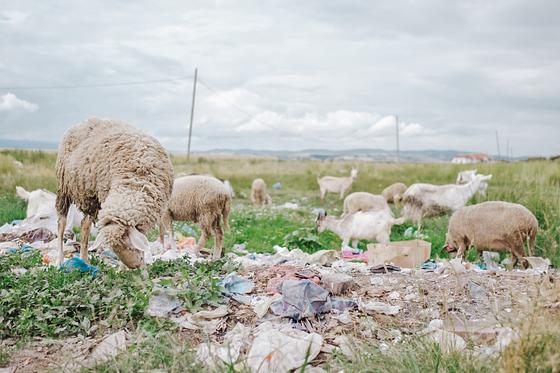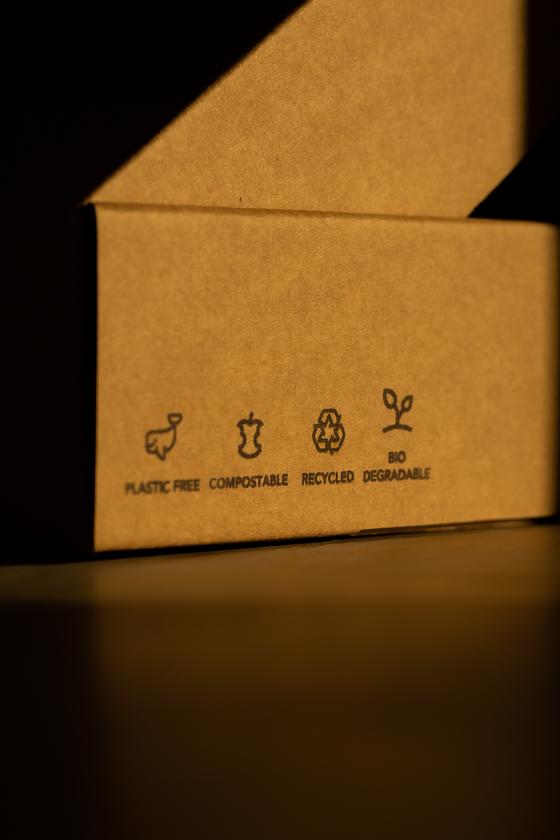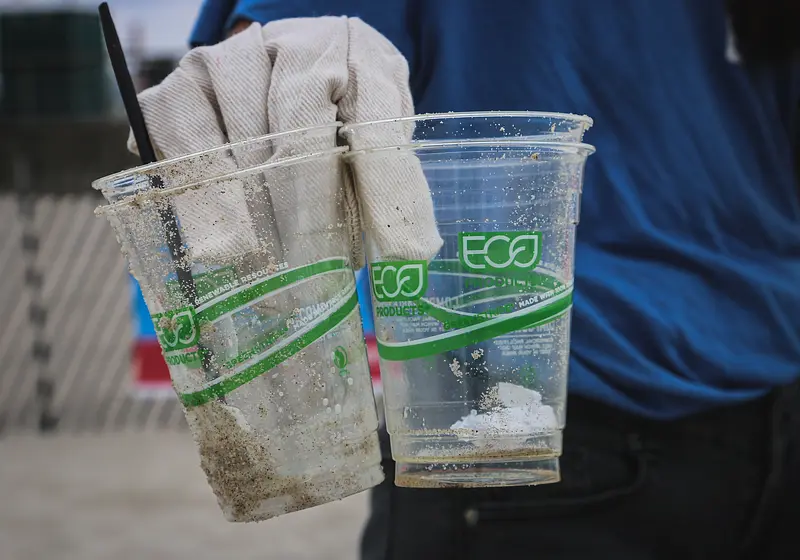In an era where sustainability and environmental consciousness are at the forefront of public concern, it is no surprise that companies are keen to align themselves with green initiatives. However, amidst the growing trend of corporate environmentalism, a nefarious practice known as greenwashing has emerged.
Greenwashing refers to the act of conveying a false impression of environmental responsibility to deceive consumers, investors, and the public at large. I aim to shed light on the deceptive tactics employed by companies engaged in greenwashing, and the detrimental consequences it poses to the credibility of corporate sustainability efforts.

Image from Unsplash
Let us slide into your dms 🥰
Get notified of top trending articles like this one every week! (we won't spam you)What is Greenwashing?
Picture this: You're shopping for a new backpack, and you stumble upon one with a label that says "Eco-Friendly" or "100% Sustainable." Sounds great, doesn't it? Well, here's the catch. Greenwashing happens when companies use deceptive tactics to make their products or practices seem more environmentally friendly than they really are. It's like putting on a green mask to hide their true colours.

Image from Unsplash
Greenwashing takes various forms, ranging from vague claims and misleading labels to outright falsehoods about a company's environmental practices. Some common tactics include exaggerated or false claims of energy efficiency, recycling efforts, and carbon footprint reduction. The intention behind greenwashing is not genuine sustainability, but rather to create a positive public image and capitalize on the growing demand for eco-friendly products and services.
Take the Quiz: Which Indian city is the perfect holiday spot for you!?
Let's match you with an Indian city that you would love!
The Tricks of Greenwashing
1. Vague and Misleading Claims: Have you ever seen labels that say "All-Natural" or "Environmentally Conscious" without any specific details? Beware!
These claims are often vague and don't provide any real evidence of sustainability. It's like saying something is healthy without explaining why.
2. Hiding the Ugly Truth: Some companies focus on one small eco-friendly aspect of their product or service while conveniently ignoring the bigger picture. For example, a fast-food chain might promote its biodegradable packaging but ignore the fact that its food production contributes to deforestation.

Image from Unsplash
3. Fancy Eco-Labels: Watch out for those flashy eco-labels that seem legit but are actually self-proclaimed or meaningless. Just because a product has a leaf or a tree on its packaging doesn't automatically make it green. Look for trusted third-party certifications like Energy Star or USDA Organic.
Companies called out for green-washing
1. Volkswagen: Volkswagen admitted to cheating emissions tests by fitting various vehicles with a “defect” device, with software that could detect when it was undergoing an emissions test and altering the performance to reduce the emissions level.
This was going on while to the public the company was touting the low-emissions and eco-friendly features of its vehicles in marketing campaigns. In actuality, these engines were emitting up to 40 times the allowed limit for nitrogen oxide pollutants.

Image from Unsplash
2. Nestlé: In 2018, Nestlé released a statement saying that it had “ambitions” for its packaging to be 100% recyclable or reusable by 2025. However, environmental groups and other critics pointed out that the company hadn’t released clear targets, a timeline to accompany its ambitions or additional efforts to help facilitate recycling by consumers.

Image from Unsplash
Greenpeace reacted to this by releasing its own statement, in which it said, “Nestlé’s statement on plastic packaging includes more of the same greenwashing baby steps to tackle a crisis it helped to create. It will not actually move the needle toward the reduction of single-use plastics in a meaningful way, and sets an incredibly low standard as the largest food and beverage company in the world.” In Break Free From Plastic’s 2020 annual report, Nestlé, along with Coca-Cola and PepsiCo, were named the world’s top plastic polluters for the third year in a row.
3. Coca-Cola: In 2020, the company came under fire when it announced that it would not abandon plastic bottles, saying that they were popular with customers.
Despite this, the company is adamant that it is making progress in tackling packaging waste. At the time, a spokesperson said, “Globally, we have a commitment to get every bottle back by 2030, so that none of it ends up as litter or in the oceans, and the plastic can be recycled into new bottles. Bottles with 100% recycled plastic are now available in 18 markets around the world, and this is continually growing.”

Image from Unsplash
Then, in June 2021, the environmental organisation Earth Island Institute filed a lawsuit against the beverage giant for falsely advertising that it is sustainable and eco-friendly despite being the largest plastic polluter in the world.
4. Starbucks: In 2018, Starbucks released a “straw-less lid,” as part of its sustainability drive. However, this lid contained more plastic than the old lid and straw combination. The company didn’t dispute this, but claimed that it is made from polypropylene, a commonly-accepted recyclable plastic that “can be captured in recycling infrastructure.”

Image from Unsplash
Critics were quick to point out that only 9% of the world’s plastic is recycled, so the company shouldn’t assume all the lids would be recycled. Further, the US exports about one-third of its recycling to developing countries, so it is simply passing its responsibility to poorer countries.
5. IKEA
IKEA was considered a beacon of a major corporation being sustainable before June 2020 when the furniture retailer was linked with illegal logging in Ukraine. In a report by NGO Earthsight, the wood certification scheme IKEA uses, Forest Stewardship Council, was described as an organisation that greenwashes the timber industry. It was accused of failing to catch IKEA’s sourcing of conflict wood, and act on it.

Image from Unsplash
Further, when IKEA built its “most sustainable store” yet in London in 2019, it did so on top of another sustainable store that was demolished after just 17 years of use.
The Consequences of Greenwashing
1. Misleading Consumers: Greenwashing deceives well-intentioned consumers who genuinely want to make environmentally responsible choices. When companies misrepresent their products or services as green, consumers may unknowingly support unsustainable practices, undermining their own efforts to reduce their environmental impact.
2. Undermining Legitimate Green Initiatives: Companies that genuinely invest in sustainable practices and environmental stewardship suffer from greenwashing as it dilutes the credibility of authentic sustainability efforts. Consumers become skeptical and disillusioned, making it harder for companies committed to genuine change to gain trust.

Image from Unsplash
3. Eroding Transparency and Accountability: Greenwashing perpetuates a lack of transparency and accountability in corporate practices. By masking their true environmental impact, companies avoid scrutiny and sidestep regulatory measures that aim to protect the environment. This lack of accountability hinders progress toward a genuinely sustainable future.
Fighting back against greenwashing
1. Educating Consumers: Raising awareness about greenwashing is essential. Consumers should be empowered to identify deceptive tactics, evaluate sustainability claims critically, and seek transparent information before making purchasing decisions. Independent certifications and eco-labels can also aid in distinguishing genuine environmentally friendly products from greenwashed alternatives.
2. Strengthening Regulations: Governments and regulatory bodies play a crucial role in combating greenwashing. Stricter regulations and enforcement mechanisms should be established to prevent companies from making false or exaggerated environmental claims. Improved labeling standards and penalties for non-compliance can help ensure accountability.
3. Encouraging Corporate Accountability: Companies need to be transparent and accountable for their environmental practices. Adopting internationally recognized frameworks, such as the Global Reporting Initiative (GRI) or the Sustainability Accounting Standards Board (SASB), can provide a standardized approach to reporting and measuring environmental impacts.
4. Supporting Third-Party Verification: Independent organizations and NGOs can play a pivotal role in verifying companies' sustainability claims. Their impartial assessments can help validate green initiatives and provide consumers and investors with reliable information.
5. Be Informed: Stay curious and dig deeper. Research companies and their environmental claims before making a purchase. Look for transparent information about their sustainability practices and be wary of vague or misleading claims.
6. Support Ethical Brands: Seek out companies that are genuinely committed to sustainability and transparency. Look for brands that have third-party certifications from trusted organizations, and support companies that openly share their environmental goals and progress.
7. Speak Up: Don't be afraid to call out greenwashing when you see it. Share your concerns on social media, write reviews, or engage in conversations with your peers.

Image from Unsplash
As the urgency to address environmental challenges grows, so does the prevalence of greenwashing. Companies must recognize that sustainability is not a mere marketing strategy but a fundamental responsibility. Genuine commitment to environmentally friendly practices, transparency, and accountability are the cornerstones of authentic corporate environmentalism. By understanding and exposing greenwashing tactics, consumers, regulators, and businesses themselves can work together to create a truly sustainable future.












